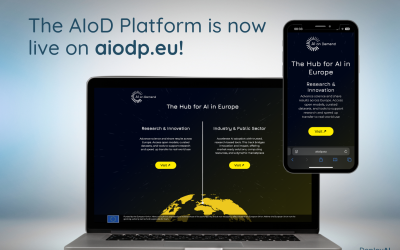Berlin, 11 April 2024 – Today, a consortium of eleven leading international industry, technology and science organisations, announces the release of the Value of the EU Battery Passport study, which sheds light on the benefits and challenges of digital product passports for batteries and underscores their strategic importance for businesses and policymakers alike.
Titled ‘The Value of the EU Battery Passport’, the study is published by the Battery Pass project with co-funding from the German Federal Ministry for Economic Affairs and Climate Action (BMWK) and presents the first comprehensive analysis of the qualitative and quantitative benefits as well as challenges of battery passports for businesses along the value chain, policymakers, and consumers. It explores in detail where and how economic, environmental, and social value can be generated by the adoption of battery passports, which are required by the EU Battery Regulation in a bid to increase transparency, circularity and sustainability in the battery value chain. The study also describes the challenges that companies might face right now or in the future, depending on their type and size. The aim of the study is to paint a more realistic picture of the value creation of Digital Product Passports (DPP) for batteries and promote strategic engagement of the battery passport by individual stakeholders.
Key findings:
- Battery passports offer a strategic opportunity for businesses to generate value, foster digital and green markets, and introduce sustainable business models. Among others, the study suggests that battery passports could reduce future procurement costs (including technical testing costs) for independent operators by ~2-10% and reduce costs for pre-processing and treatment for recycling by 10-20% due to reduced sampling needs. In addition, recycling rates could be improved by ~1-2%, and ~370 to 1,300 kt of CO2 could be saved annually in the EU through the extended service life of batteries*.
- Policymakers play a pivotal role in realising the benefits of battery passports by creating and enabling efficient regulatory conditions. These minimise costs for affected companies and provide support to small and medium size enterprises. The study finds that incorporating battery passports in vehicle de-registration and export procedures could potentially unlock around 5-20% of active material demand for electric vehicle batteries forecast for 2045 in Europe.
- Consumers stand to benefit from battery passports by being empowered to make informed decisions when purchasing or selling batteries, provided effective communication strategies are implemented.
Stefan Wenzel, BMWK Parliamentary State Secretary said: “The German government is supporting electric mobility and the ambition to create a competitive, sustainable battery production in Europe. More transparent battery value chains, enabled by the digital Battery Passport, are vital for this. Therefore, we have been funding the Battery Pass project since 2022. Its recent study underscores the importance of regulatory support for the adoption of digital product passports. It has a valuable impact on shaping future policies which promote transparency, efficiency, and environmental stewardship in the battery sector.”
The Battery Passport Value Assessment presents twelve battery passport use cases along the value chain, supplemented by an initial quantitative assessment of three of them: improved residual value assessment, improved recycling efficiency, and increased end-of-life collection. While emphasising the benefits, the study also acknowledges potential challenges as well as implementation costs and identifies interventions beyond current regulatory requirements to unlock further value.
Tilmann Vahle, Battery Pass consortium lead and Director, Sustainable Mobility and Batteries at Systemiq, said: “The Battery Pass consortium breaks new ground with our industry use cases assessment. After collaborating extensively with industry stakeholders to ensure reliability, we’re pleased to validate our positive expectations. However, challenges remain, particularly for small and medium-sized enterprises who should receive government support. Next, we’re going to complete our assessment with a systems level analysis, which we will publish this autumn.”
Josef Schön, Corporate Strategy, Audi, said: “The EU Battery Pass has several advantages for the entire industry: we gain transparency about the raw materials used, their origin and the supply chain. This is important for processing and subsequent recycling.”
From 22–26 April 2024, at Hannover Messe (Hannover, Germany), the Battery Passport Value Assessment results will be available at the Fraunhofer booth in Hall 2, Stand B24. Visitors will also be able to explore an interactive visualisation of the battery passport’s impact through three deep-dive use cases. The dashboard will allow visitors to explore quantitative modeling.
The key results will also be featured on the BMWK stage in Hall 2, Stand A18, in a handover ceremony on April 22 at 1:05 pm with Parliamentary State Secretary Stefan Wenzel.
To access ‘The Value of the EU Battery Passport’, visit https://thebatterypass.eu/resources/.
*Disclaimer: This quantitative assessment relies on qualitative assumptions and generic economic estimations for non-representative technologies and thus includes inherent uncertainties as processes may be adopted or evolve over time.



